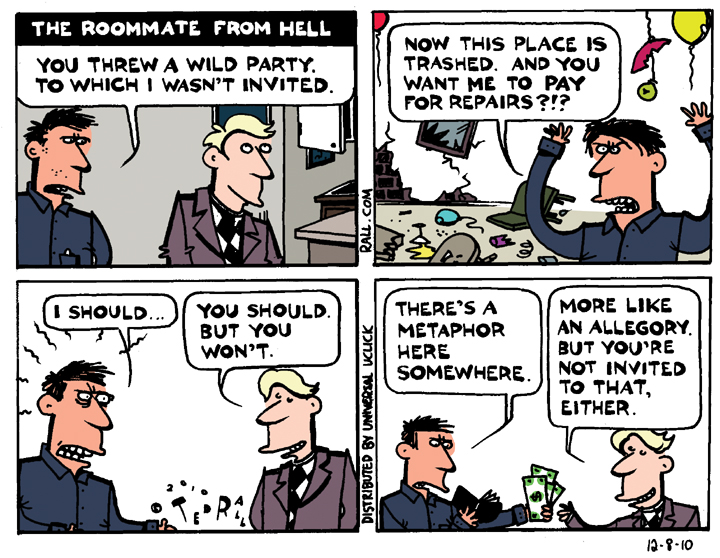Why Won’t Obama Explain His Third War?
U.S. forces fired 110 cruise missiles at Libya on the first day of the war. Each one cost $755,000 to build; $2.8 million to transport, maintain and shoot. Austerity and budget cuts abound; there’s no money for NPR or teachers or firefighters. Note to union negotiators: the government has lots of money. They’re spending it on war.
For people too young to remember Bosnia, this is what a violent, aggressive, militarist empire looks like under a Democratic president. Where Bush rushed, Obama moseys. No one believed ex-oil man Bush when he said he was out to get rid of the evil dictator of an oil-producing state; Obama, the former community organizer, gets a pass under identical circumstances. Over the weekend, also the eighth anniversary of the start of the Iraq quagmire, there were few protests against Obama’s Libya War, all poorly attended.
I spent the weekend in New York at Leftforum, an annual gathering of anti-capitalist intellectuals. “What do you think about Libya?” people kept asking. What passes for the Left is ambivalent.
In part this waffling on Libya is due to Obama’s deadpan (read: uncowboy-like) tone. Mostly, however, the tacit consent stems from televised images of ragtag anti-Qadafi opposition forces getting strafed by Libyan air force jets. We Americans like underdogs, especially when they say they want democracy.
Still, the President is not a dictator. He can’t declare war. And while he might be able to lie his way into one, he and his party will pay at the polls if he fails to explain why we’re attacking a nation that poses no threat to the United States.
There are a lot of questions we—and journalists—should be asking Obama. Obviously, we’re broke. Our military is overextended, losing two wars against the people of Afghanistan and Iraq. How can we afford this?
Also:
1. Whom are we helping?
The U.S. and its allies are destroying Libya’s air force in order to tip the balance in the civil war in favor of anti-Qadafi forces. A similar approach, aerial bombardment of Afghan government defenses, allowed Northern Alliance rebels to break through Taliban lines and enter Kabul in 2001. It could work again in Libya.
But who are these anti-Qadafi forces? Rival tribes? Radical Islamists? Royalists? What kind of government will they establish if they win? What are their ideological and religious affiliations? If anyone in the media or the White House knows, they’re not telling.
Or perhaps, as in Iraq, the White House doesn’t have a governance plan for post-Qadafi Libya. Which, as in Iraq, could lead to chaos. No nation should go to war without considering the long-term consequences.
Before we pick sides in a conflict, shouldn’t we know for whom we are going billions of dollars further into debt?
2. Does Qadafi have the right to defend himself?
From Shea’s Whiskey Rebellion to Confederacy to the Red Scares to the Black Panthers and the Weathermen, the U.S. government has violently suppressed armed rebellions. How then can the U.S. claim moral authority to prevent other governments from doing the same thing? (“The U.S. is more moral than Libya” is not an acceptable response. Obama murders and tortures more people than Qadafi.)
3. What about self-determination?
If the Libyan people rise up and overthrow Qadafi, an authoritarian despot well past his expiration date, that’s great. Shouldn’t that struggle be a Libyan matter, to be settled between Libyans? Isn’t a government that emerges from indigenous internal struggle more likely to enjoy widespread support than one that results from outside intervention?
“Free men set themselves free,” said James Oppenheim. Can a people truly feel emancipated when they owe their freedom—and later, inexorably, their oil and gas—to a foreign superpower?
4. Why are we OK with some dictators, but not others?
Since the Middle East began blowing up we’ve heard a lot of talk about Obama’s dilemma: How do we reconcile American values with American strategic interests? In a good country—at least a non-hypocritical one—they are the same.
Obama is employing circular logic. “Why strike only Libya, when other regimes murder their citizens too?” asks Chris Good in The Atlantic Monthly. “Obama’s answer seems to be: because the UN Security Council turned its attention toward Libya, and not other places.” But the UN reacted in response to the U.S.
In other words: We’re agreeing to a request that we made ourselves.
Ideology and policy must be consistent to be credible. If we have a policy to depose dictators, then all dictators must be targeted. We can’t just take out those in countries with lots of oil. We ought to start with tyrants for which we bear responsibility: our allies and puppets. At this writing the U.S. supports or props up unpopular authoritarian regimes in Saudi Arabia, Turkmenistan, Uzbekistan, Jordan, Yemen, and elsewhere.
5. Is Libya our geostrategic business?
The United States has no substantial historical ties with, innate cultural understanding of, or geographic proximity to, Libya. Even under the imperialist doctrine of “spheres of influence” that governed international relations during the Cold War, Libya falls under the purview of other would-be interventionists. Italy, and to a lesser extent Britain and France, are former colonial masters. The Arab League and African Union have interests there. Even if you buy the sentimental argument—”Are we going to stand by and watch Qadafi slaughter his own people?”—why us? Why not the Africans or Europeans?
(Ted Rall is the author of “The Anti-American Manifesto.” His website is tedrall.com.)
COPYRIGHT 2011 TED RALL


